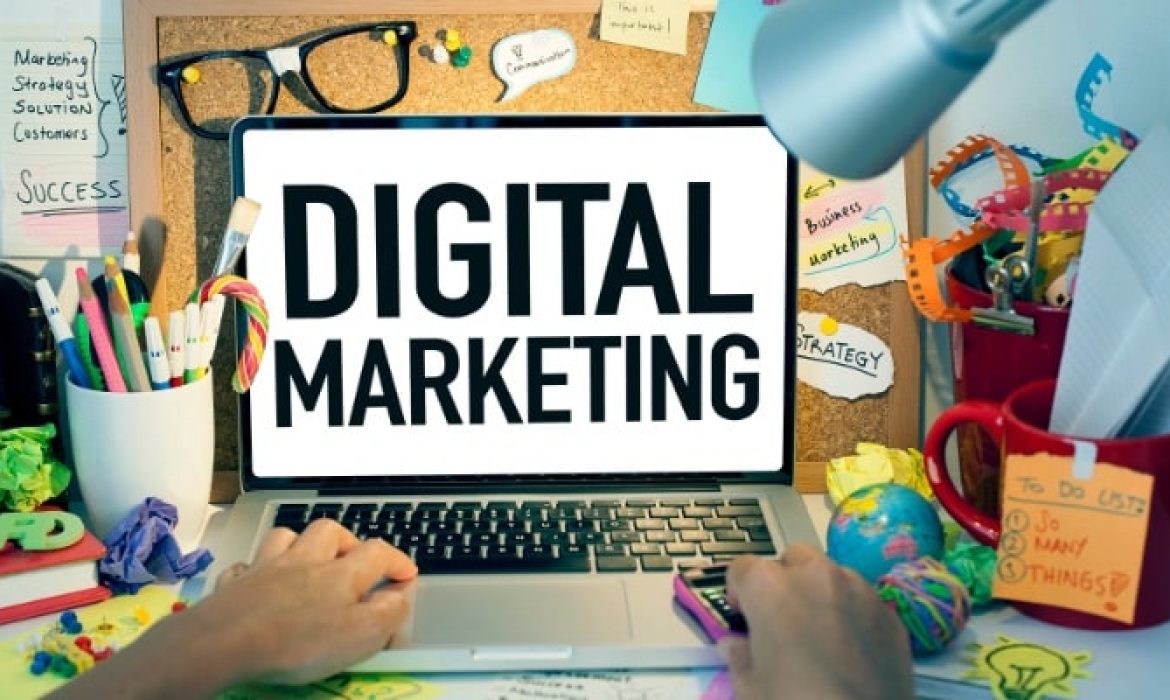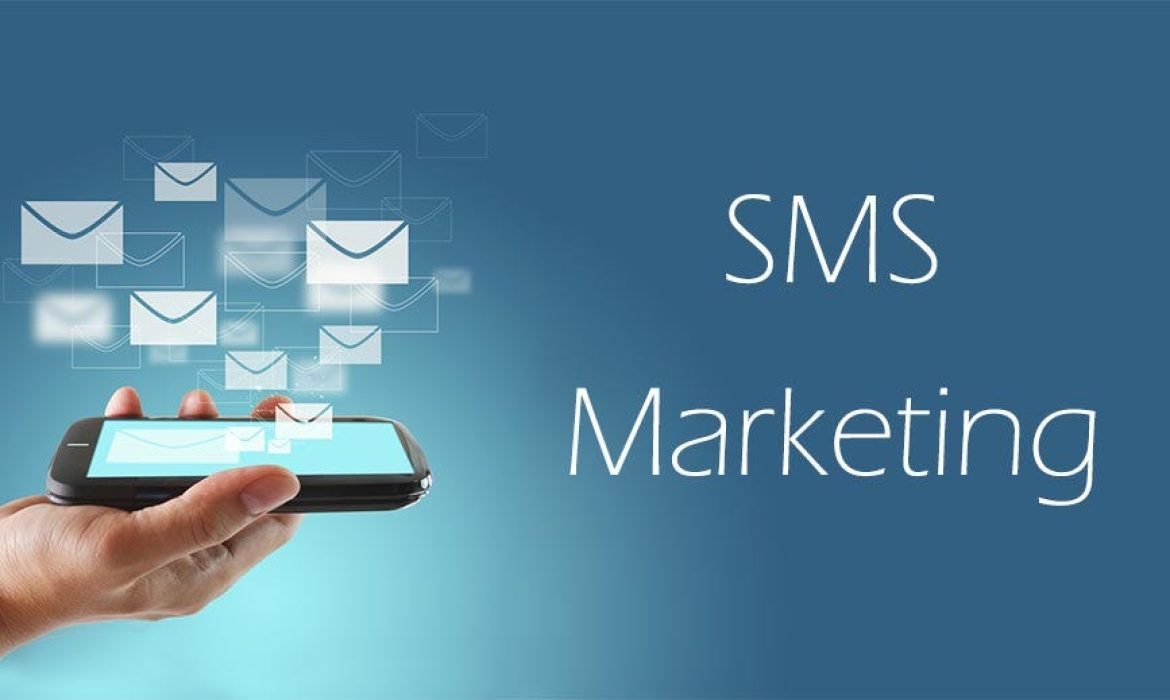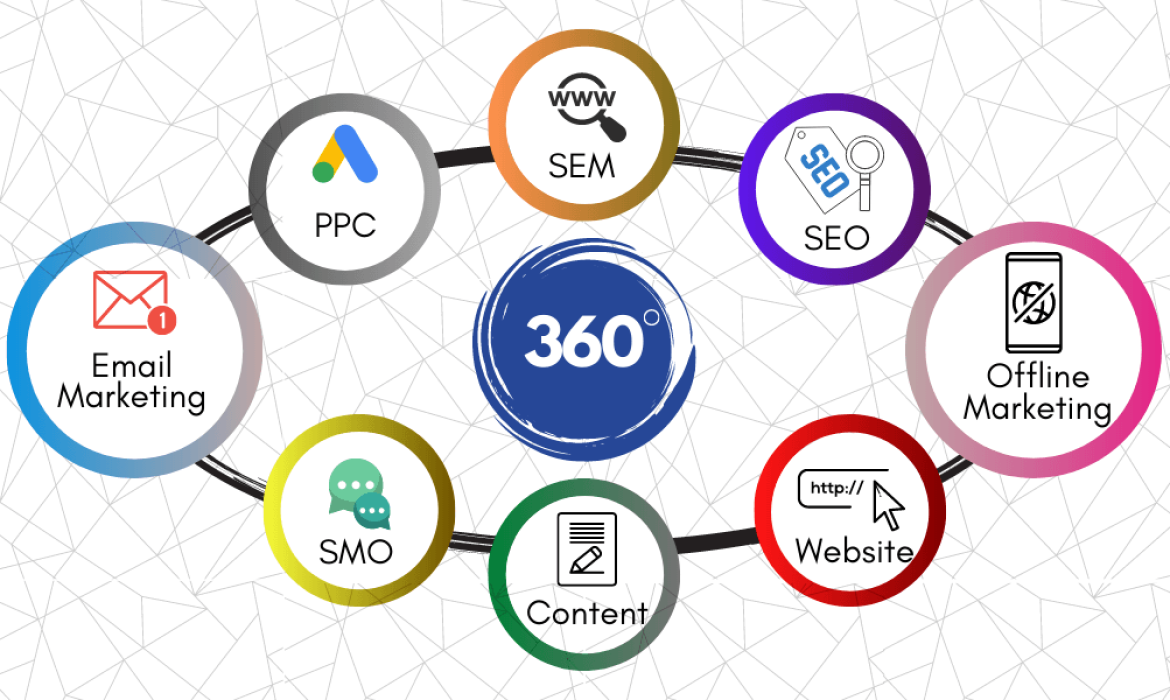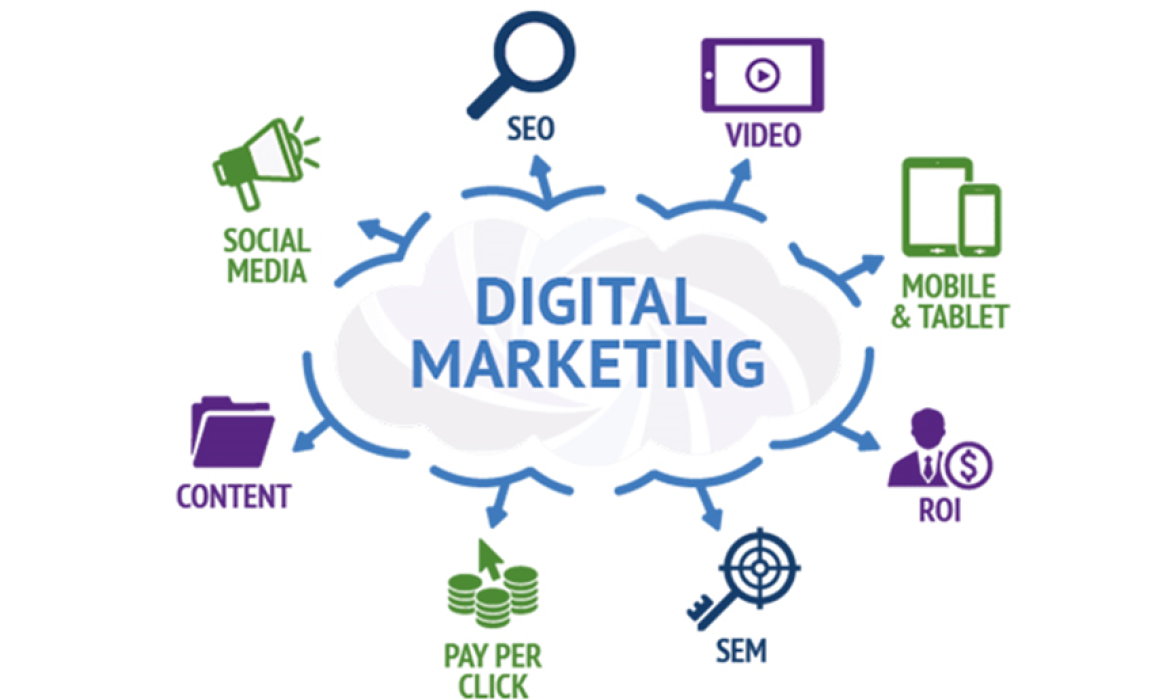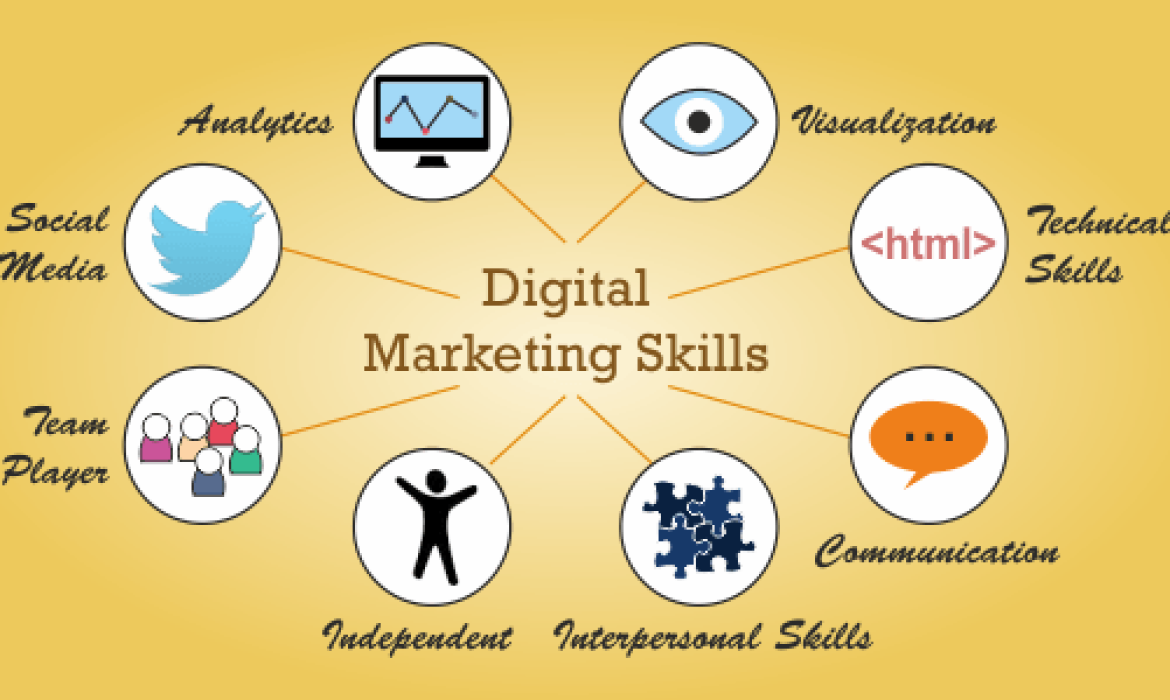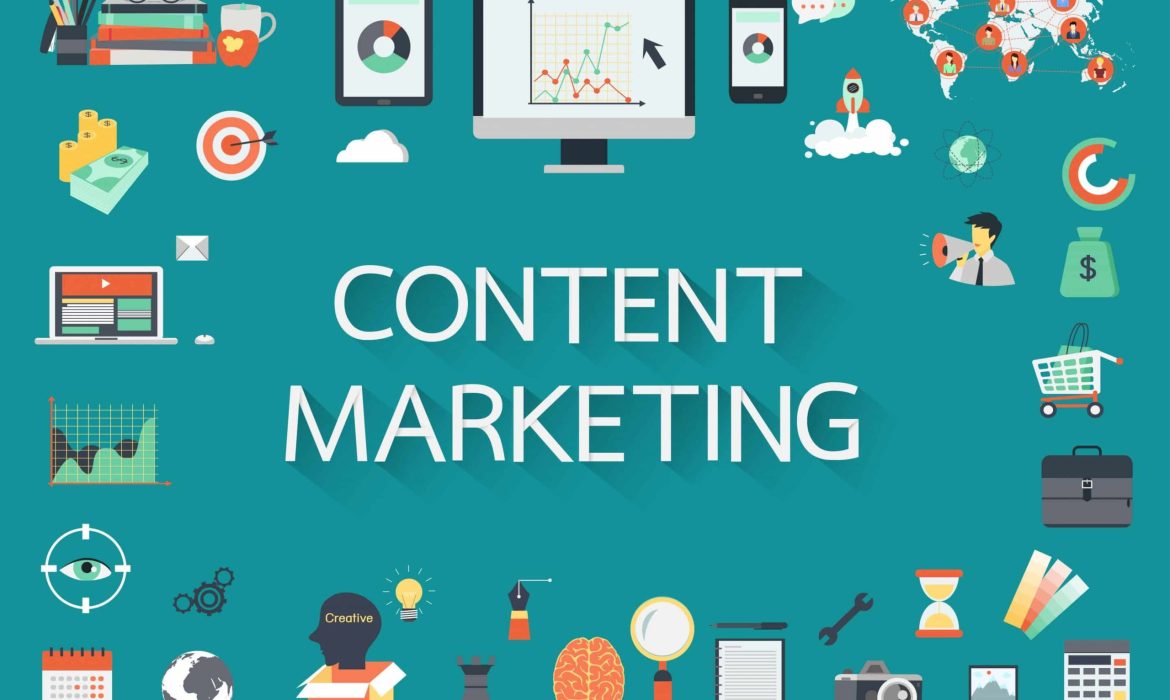What does the term “conversion” mean in digital marketing?
What does the term “conversion” mean in digital marketing?
The completion of an advertising objective or engagement is known as a “conversion” in digital marketing. It is one of the most crucial metrics in digital marketing since it determines how well a website or marketing campaign performs in terms of generating revenue or accomplishing objectives. A conversion is frequently linked with a sale by advertisers. A conversion, however, is basically any desired activity that website visitors carry out. Although a sale is the desired action most of the time, it could also be a lesser action that advances a customer closer to making a purchase.
Also Read:- The Top 8 tips for a successful Meeting
Formula of Conversion
Conversion= impressions or Clicks x Conversion Rate%
Why is conversion tracking important?
Also Read:-What are active app users, and how can they be increased?
Analysing the effectiveness of your campaign is the main goal of conversion tracking. For instance, if you manage an e-commerce website and are unsure whether your advertisements are generating sales, you can be wasting money. Once the conversion tracking system is set up, you will be able to identify the approach or method that is producing the most profitable or valuable conversions. To maximise the utilisation of your marketing budget, you will be able to securely transfer cash to better-performing areas as you test and learn. In order to precisely describe your marketing funnel, you ought to set up and track conversions. When your funnel is thoroughly tracked, you will be able to see the points at which customers are losing interest as they continue to move down the funnel and build audiences that resemble your most successful customers.
Also Read:- The top 7 email marketing strategies for 2023
How Can Conversion Be Calculated in Digital Marketing?
Depending on the objectives of the website or marketing effort, there are various techniques to measure conversion. The following are some common techniques for measuring conversion in digital marketing:
Sales: The percentage of website visitors who actually make a purchase is known as the sales conversion. Divide the total number of sales by the total number of website visits, then multiply the result by 100 to determine the sales conversion rate.
Click-through conversion: Click-through conversion estimates the proportion of site visitors who click on a particular link or call-to-action. Divide the total number of website visits by the number of clicks to obtain the click-through conversion rate, then multiply the result by 100.
Leads: A visitor’s probability of completing a form or offering contact information is measured by their lead conversion rate. Divide the number of leads by all of the website visitors, and then multiply the result by 100 to find the lead conversion rate.
Also Read:- The Top 5 Email Automation Tools for 2023
Website Engagement: The conversion of website engagement defines the proportion of visitors who interact with the website, such as by spending a given amount of time on it or visiting a certain number of pages. The number of engaged visitors must be divided by the total number of website visits, then multiplied by 100, to determine the website engagement conversion rate.
Also Read:- The Most Effective WhatsApp Marketing Techniques of 2023
Conversion Optimisation for Digital Marketing
Conversion rate optimisation is a key objective for firms since it immediately impacts sales and profitability. Businesses can use the strategies listed below to increase conversion in digital marketing:
High-quality material: To increase conversion, high-quality material is crucial. It must be valuable, pertinent to the visitor’s requirements, and simple to read.
Call-to-Action Transparency: In order to maximise conversion, a call-to-action must be clearly stated. The call-to-action must be prominent, make use of language that encourages action, and clearly state how the visitor will reap the rewards.
Easily accessible website:The website needs to be simple to use and navigate. It ought to load quickly, have an organised structure, and be simple to use on mobile devices.
Also Read:- The Influence of User-Generated Content on Marketing
Customization: Customization is a successful conversion-boosting strategy. Businesses can boost engagement and conversion rates by tailoring the website or marketing campaign to the visitor’s preferences or choices. For instance, a company might tailor the content of a website based on the visitor’s place of residence or past search activity.
Use social proof: Social proof can be an excellent conversion-boosting strategy. The concept of social proof states that individuals are more likely to act if they believe that others have previously done so. Businesses can improve credibility and trust while also increasing conversion rates by using social evidence, such as customer evaluations or testimonials.
Retargeting: Retargeting is a technique for increasing conversion that involves displaying advertising to website users who have already interacted with the company. Businesses can raise their chances of conversion by serving these visitors with appropriate advertisements.
Increase Website Speed: Increasing website speed is essential for conversion optimisation. A website that takes too long to load will likely lose more visitors. Businesses can decrease bounce rates and boost conversion rates by speeding up their websites.
The Top 5 Benefits of Integrating Email and SMS Marketing
The Top 5 Benefits of Integrating Email and SMS Marketing
Email marketing is still one of the most economical ways to build connections. Text message marketing can also increase consumer loyalty by establishing a personal connection. The positive outcomes for your companycan be increased by combining two tried-and-true, efficient digital marketing strategies.Emails are the go-to communication method for organisations. It is used for announcements, password changes, and promotions. It has wide-ranging worldwide accessibility and is a tried-and-true platform. The only effective platform for client engagement, though, is not this one. Businesses can deliver brief and relevant communications with the help of SMS, which is a strong tool. Given the prevalence of mobile devices, it should come as no surprise that SMS and email marketing work well together. You can maximise each by being aware of the ideal uses. You can maximise email and SMS marketing by being aware of the optimal uses for each. When used wisely, both platforms may increase the potency of your campaigns and increase consumer engagement. Here are five outstanding advantages to combining SMS and email marketing.
Also Read:- The Most Effective WhatsApp Marketing Techniques of 2023
Email and SMS marketing solely depend on user consent
Your customers are permitting you to contact them through a variety of channels, whether they tick a box to get an SMS delivery notification or fill out an online registration form to get a weekly email subscription. The list your business creates from these sign-ups is of better quality than any you can find using group builders from social media and search engines like Google. An email marketing and SMS strategy gives a personalised way to communicate with the proper audience instead of targeting them with commercials they don’t want to view. People who opt in are the ideal prospects since they have curiosity about what you are saying.
Email and SMS marketing are both inexpensive
Digital marketing is one of the most inexpensive means to get in touch with your target market. The ROI for email marketing is approximately 75%, whereas the ROI for SMS marketing is around 90 percent. By combining the two channels, you can boost your audience while keeping your cost per acquisition low.These two channels’ cost-effectiveness isn’t just a result of their lower execution expenses. The channels often reach exceptional levels of customer engagement in each situation. When used properly, these channels can offer considerable ROI benefits due to their higher involvement and rate of response, as well as lower upfront costs.
Also Read:- The Influence of User-Generated Content on Marketing
Apply various communication channels to reach more customers
Some people find it annoying when a company they’ve previously ordered from texts them. Some people find it annoying when a company they’ve previously ordered from texts them. Tracking open and response rates before dividing your audience based on messaging preferences is the simplest way to guarantee that every customer is happy with a campaign. Customers are unlikely to always notify you of their preferred channel when you’re trying to construct a list. Because it’s the first one that’s shown to them, they might join up for one or the other. By ensuring that everyone has the opportunity to sign up for both lists, you can experiment with their preferred methods of communication before observing how they engage.
You have full control over the send time and frequency
You can decide when your communications are sent, which is one of the main benefits of email marketing. By doing this, you can take full advantage of various time zones and make sure that your messages arrive when they are most likely to be read. You can also regulate the frequency of your communications, which is useful if you don’t want to over-inundate your contacts with emails. Since both email and SMS provide you with this level of control, it is possible to synchronise the timing of the two channels. It enables marketers to integrate the outcomes of a particular channel with those of another, for example, by delivering an SMS campaign that is even more timely as an addition to an email campaign.
Also Read:- The Complete Overview of Push Notifications for 2023
Interactions can be established through email, while commitments can be made by SMS
With the help of compelling offers and content, email marketing enables you to develop a connection with your customers. Email can be used to communicate with existing subscribers, disseminate useful information, and advertise your business. When a consumer first subscribes, however, not all are prepared to make a purchase from you. Through the use of a limited-time offer or discount, SMS marketing can persuade customers to buy. In addition, you can use SMS to follow up with clients after they have visited your store or website, remind them of a sale or event, or remind them of a promotion.
How to Make Your Digital Paid Media Strategy Work Best for Your Brand
How to Make Your Digital Paid Media Strategy Work Best for Your Brand
Building an effective online presence is crucial for businesses to remain successful in today’s digital environment. Brands can reach their objectives by boosting brand recognition, driving traffic to their websites, and ultimately growing revenue with the aid of an effective paid digital advertising plan. Today, we’ll go over how to tailor your digital paid media plan to your brand.
Also Read:- How to Make Use of Twitter’s Algorithm for Your Marketing Benefit
Setting Objectives
You should keep your end goal in mind while developing paid media strategies for digital marketing, such as to increase website traffic or sell your product. It is simple to get ready for the beginning phases once your end stage is planned, which involves choosing platforms for the advertisement to run on, specifying locations, and a lot more.
Take advantage of user-submitted comments
People are more likely to believe what another person has to say than what a company is doing to advertise its products. A good marketing tactic is to include a statement beside the customer review. This will boost organic sales in addition to improving consumer confidence in your brand. When you use customer testimonials in your advertising, you are letting your audience know that you value their opinion and that you want to use it to strengthen your brand. Your clients will experience the sense of community that you are creating.
Also Read:- How to Factory Reset Your Android Smartphone
Landing Pages should Look attractive
It’s apparent that you should redesign your landing pages and website for the holiday season. In quest of deals and discounts, customers frequently visit websites during holidays. As a result, you can incorporate click-through advertisements that have very concise and effective information, causing users to click on them right away. This provides the website with information about the item they are interested in, and afterwards they can be targeted with advertising for the same item at a different price or with some offers. Additionally, websites that are mobile-friendly are advantageous for generating leads.
Creating Engaging Content
Since there is so much material available online nowadays, it might be difficult to stand out from the crowd and develop interesting and useful content. Producing premium content with a narrative focus is essential because it’s becoming more challenging to draw in and hold the attention of your target audience. Fiction can actually be up to 25 times more remembered than facts, according to studies. Your best chance to elicit feelings and engage your audience more deeply, thereby fostering priceless long-term devotion, is probably now.
Read More:- How to expand your business when sales are down
Videos are the Simplest Way to Spread Your Message
You can write lengthy blog articles or posts explaining how your product or service stands out from the competition, but let’s be honest—not everyone has the time to read them. Using the power of videos is the quickest and simplest way to spread information. You have the ability to produce and upload movies on several social networking sites, like Facebook, Twitter, Instagram, etc.Before you start producing videos, it’s important to know what your target audience wants to see, and only then should you provide content that provides answers to those questions.
Identifying Your Target Audience
Understanding your target demographic is essential before beginning any digital paid media campaign.Market research can be used to discover the behaviour and preferences of your target market.To learn more about your audience, use tools like Google Analytics and surveys. Additionally, researching your target market can be accomplished by assessing your competition. You can view the campaigns they are conducting, the platforms they are using, and the audience segments they are focusing on.
Also Read:- How to Execute an SEO Competitive Analysis
Selecting the Best Platforms
There are many digital paid media platforms accessible, including Google Ads, Facebook Ads, Instagram Ads, LinkedIn Ads, and more. Your target audience and advertising objectives will help you choose the best platform. It’s critical to select a platform that caters to your target audience because each platform has its own demographics. Every platform has its own ad format, so it’s critical to pick one that supports the objectives of your campaign. For instance, Google Ads are wonderful for search marketing, whereas Facebook Ads are perfect for social campaigns. Making interesting ad copy and creative is the next step after selecting your platform. Your ad copy should be brief, engaging, and pertinent to your target demographic. Your creativity should reflect your brand and be aesthetically appealing.
Also Read:- How to E-File Your Income Tax Returns Online: Here’s a Step-by-Step Guide
Conclusion
In a nutshell, paid media marketing isn’t anything new and has been practised for a long time.However, when sponsored marketing tactics migrate to social media, we are exposed to them more frequently. A paid media marketing strategy is difficult to develop.An effective marketing plan must take into account the needs of the consumer as well as the information you want them to know.
How to Establish a Digital Marketing Firm
How to Establish a Digital Marketing Firm
A digital marketing business will provide online marketing services to clients in an effort to increase audience size and conversion rates. Digital marketing is essential for survival in today’s highly competitive business environment. With the correct multi-platform strategy, digital marketing can help companies target new audiences while building more satisfying and lucrative client connections with the help of the correct multi-platform strategy.Digital marketing is an affordable way to increase brand recognition, lead generation, and revenue. It’s also an excellent way to stay current with fashion and stay one step ahead of your rivals.
Also Read:- How to effectively onboard new app users with email
Establishing a digital advertising firm can be an excellent way to earn money and aid other companies in achieving their marketing objectives. By using digital marketing services, businesses of all sizes can gain from the development, maintenance, and expansion of an online presence. Today, we’ll go through an in-depth guide for launching your own digital marketing business.
Create a Strategy
You must consider your specialty, placement, and strategy from the beginning if you are serious about making a name for yourself in the digital marketing sector. Each choice will have its own effects, regardless of whether you want to concentrate on one area of digital marketing or consider 4-5, target 2-3 industries, stay local, or go global. Work on your strengths if that is your goal. Don’t try to do too much in the beginning. The rules of the startup game are applicable in this situation. Start off firmly and gently.
Also Read:- How to Clean Up Your Browser’s Cache, Cookies, and History for a Faster Computer
Start a website
There are several factors to consider when starting a website, including website design, content, technological transportation, marketing, and much more. Making a multitude of decisions is necessary when starting an online marketing agency. Making a decision about how you will locate clients for your consulting business is one of the most crucial first steps. All you need to start a website is a domain name and hosting. Otherwise, you cannot set up your website so that others can read and view it. We suggest using GoDaddy or Bluehost if you are a complete beginner and are seeking a great hosting service provider at a reasonable price. They are very reliable and simple to use.
Also Read:- How to Advance Your Career as a Digital Marketer Without Experience in 2023
Establish a business plan
Any service-based business’ success depends substantially on its business plan. It offers a roadmap for achieving both short- and long-term objectives and makes sure that every part of your new company works together to do so. To start and grow your firm, you must write a business plan. The specifics of your goals and objectives, as well as a plan for accomplishing them, should be included in your plan. It must have a more thorough review of your company, its goods and services, and the market. You need to conduct a competitive assessment of your target market, rivals, and market trends. You must include an organisational chart, which gives a list of the key players in your company and a chance to emphasise the talents and qualities of your team. Last but not least is the financial plan, which contains a budget, financial predictions, and funding sources.
Also Read:- How Online Stores Can Use Marketing Automation Strategies to Boost Customer Retention
Consider developing your brand
Building a brand nowadays is one of the most essential things you can do to differentiate yourself from the competition. Get a logo, make some business cards to hand around, fill the site with relevant information, make an overview or two for correspondence, and other stuff. Having a logo helps you establish your brand identity and increases brand recognition. However, do not spend a lot of time and money constantly modifying or polishing the design. Find something that interests you instead, and go from there. Once your digital marketing business is successful, you can set aside money for a better logo design if you feel it is necessary.
Register your company
Although you can start out as a solopreneur, if you want to grow, you’ll need to establish a business identity. Depending on how you want to proceed, you can consider registering your business as a proprietorship, a one-person operation, a private limited company, a limited liability company (LLC), or a limited liability partnership (LLP). If you want to be sure that your bank accounts are in order and that your taxes are submitted on time, you might want to engage an accountant.
Also Read:- How does your digital company combine paid and organic social media marketing?
Stay up-to-date
The necessity to keep up with the most recent trends and industry-accepted procedures is one of the most important considerations for digital marketing organisations. In order to offer your customers, the finest services possible, you must continually improve your expertise and keep updated. Make sure your staff members attend conferences, training sessions, and seminars so they can acquire new knowledge and network with individuals who share their beliefs. Understanding the dynamics of the industry and keeping up with the most recent developments in both the sector and the world of digital marketing are important.
An Overview of Digital Marketing
An Overview of Digital Marketing
Digital or “online marketing” involves the promotion of brands using the internet and other digital communication platforms. This includes email, social media, online advertising, text communications, and messages with multimedia. Using traditional marketing techniques, it could be challenging to reach customers who are interested in the products or services you offer. But with digital marketing, you can focus on those who are drawn to your products or services.
Key Benefits of Digital Marketing
The use of digital marketing as a medium for customer communication has grown significantly over time. Companies are currently raising investments in their digital marketing teams. Digital marketing offers a variety of advantages. Let’s go over the specific benefits of digital marketing in more depth.
Also Read:- An Overview of Content Creation
Cost Effective
Since all marketing initiatives for digital platforms originate online, they are less expensive. It is possible to communicate with several consumers at once and send them tailored messages. Hence, digital marketing offers a better cost-benefit ratio due to its targeted and effective strategy.
Easy customer interaction to boost loyalty
In order for your clients to develop trust in your business and brand, it is crucial that you communicate with them frequently. Digital marketing enables businesses to communicate with clients on a regular basis, understand their touch points, and do much more. Additionally, it helps to promote accountability, which is essential for developing an effective connection with your clients.
Easy to Find the Right Audience
The importance of this outweighs all the other advantages of digital marketing. You can simply reach the proper audience without spending a lot of money. Additionally, after you have successfully defined your target audience, you will find it much simpler to contact and communicate with them. Digital marketing helps businesses develop the correct marketing plan for the right audience by utilising efficient targeting tools like search engine optimisation (SEO), PPC (pay-per-click), and so on.
Also Read:- All you need to know about SMS 📨 marketing
Constantly generate leads
It is widely accepted that the leads generated by the digital marketing team are given to the sales teams for further action. Utilising analytical tools like Google Analytics, digital marketing aids in the collection of high-quality leads. In reality, lead generation costs are less than those associated with conventional marketing strategies. Additionally, lead generation occurs continuously and with high quality rather than in just one phase.
Improved brand trust
Your business can establish a reputation in a larger market with digital marketing. You can use blogs and opinions to share helpful information, rely on influencers to promote your brand, exchange guest articles with other businesses, develop case studies, and turn user participation into content. The best part is that leaving your mark doesn’t need a significant commitment of time, energy, money, or resources.
Also Read:- 7 Smart Ideas to design a small balcony Garden
Types of Digital Marketing
Digital marketing strategies can be classified on the basis of the kind of platform being used, the type of search (paid or organic), the content type, the medium type, or the method used. Below are some typical examples of digital marketing.
- Social media marketing
- Affiliate marketing
- Online advertising
- Content Marketing
- Influencer Marketing
- Search Engine Marketing
- Mobile marketing
- Collaboration
- Viral Marketing
- Email Marketing
- Pay-per-click marketing
Also Read:- 7 best yoga mats for exercising at home or in the gym
Do all types of businesses benefit from digital marketing?
Any business in any sector may succeed with digital marketing. Regardless of the products or services your business offers, digital marketing always entails developing buyer personas to determine the needs of your audience and producing worthwhile online content. That does not, however, imply that all organisations should employ a digital marketing strategy in the same manner.
B2B Digital Marketing
Your digital marketing initiatives will probably be focused on online lead generation if your organisation is business-to-business (B2B), with the ultimate objective being for a lead to speak with a salesperson. Your marketing plan may have as its objective attracting and converting the best leads for your representatives to sell via your website and supporting online platforms.
Also Read :- 7 Best Trendy Curtains for Home Décor
B2C Digital Marketing
The goal of your digital marketing campaigns may be to attract visitors to your website and convert them into customers without ever having to speak to a salesperson, depending on the price range of the products that your business sells directly to consumers (B2C).Instead of concentrating on “leads” in the conventional sense, focus on streamlining the buyer’s journey from the moment a person enters your website to the moment they place an order. Due to the possibility that your product features are more advanced in the sales process than they would be for a B2B company, you might need to use more calls-to-action to boost purchases.
Conclusion
The demand for digital marketing has fundamentally altered how people operate organisations, particularly small firms. It is quick, interesting, and easily accessible with a single button click. All you have to do is establish an online presence and begin interacting with new clients to create leads or quickly assist your current, devoted consumers.
11 Important Soft Skills for Digital Marketers
11 Important Soft Skills for Digital Marketers
Being an effective digital marketer takes more than just proficiency in technology in the rapidly changing digital landscape of today. While technical expertise is unquestionably crucial, excellent digital marketers genuinely stand out from the crowd because of their soft talents. These intangible attributes give marketers the ability to successfully negotiate the intricate nature of the online environment, engage with their intended demographic, and produce substantial outcomes. Let’s examine the 11 fundamental soft skills that are necessary for digital marketers to master in order to succeed in the digital era.
Also Read:- 10 Strategies to Boost Marketing Operational Efficacy
Social-communication abilities
It might be devastating to work on a digital marketing team without strong social and communication abilities. To achieve primary goals, it is crucial that every team member collaborates, from content marketing to social media, lead generation, product marketing, and design. Working alone without effective communication with others won’t lead to the best outcomes for you or your business. As a marketer, you must have social skills to comprehend how people interact with one another in order to understand the client journey, encourage engagement, and provide captivating content.
Creativity
It can be difficult to stand out in a cluttered internet environment. Digital marketers with creative thinking abilities can develop distinctive campaigns, engaging content, and distinctive methods. Marketers who are creative are better able to come up with original concepts, create eye-catching imagery, and convey messages that are compelling to their target audience.
Also Read:- 7 Product Marketing Techniques to Maximise Your Online Sales
Analytical abilities
The ability to convince others and use intuition are key, but you also need to be able to back up your claims. Using analytics to support your arguments for any campaign or approach can be really helpful. The ability to set up and comprehend the results of social media initiatives, lead management systems, Google Analytics, and many other programmes are examples of analytical abilities. However, from the perspective of “soft skills,” you should also be able to analyse this data and produce insights that can be put into practise.
Communication
Any marketing campaign’s success depends on effective communication. Digital marketers need to be proficient at communicating their ideas, forging relationships with clients, working together with others, and engaging audiences across a variety of digital mediums. To create persuasive material, interesting social media postings, and genuine connections online, one needs excellent verbal and written communication skills.
Also Read:- 7 Strategies for Optimising Email Marketing Campaigns
Multitasking Techniques
You probably never work on just one task at a time as a digital marketer. Multitasking is a crucial part of this career, so work on improving your multitasking abilities. Especially in small teams, many marketers juggle multiple responsibilities. You must prioritise the most essential duties in addition to multitasking. Consider what action will have the most effect on the company and take it first. Make adding value your top priority, because that is how people will perceive you.
Collaboration
Collaboration is common in the field of digital marketing. Marketers must work with multidisciplinary teams that include analysts, developers, designers, and content producers. Strong collaboration abilities enable marketers to articulate their objectives clearly, collaborate effectively with others, and draw on a variety of skill sets to accomplish common goals. In the world of digital marketing, collaboration encourages creativity and produces results.
Also Read:- 8 Techniques for Successful Email Marketing
Time Management
Time Management is a must in the fast-moving field of digital marketing, where many tasks and deadlines must be managed simultaneously. For maintaining productivity and hitting goals, effective time management skills are essential. To increase productivity and consistently produce high-quality work, marketers should prioritise their activities, set realistic deadlines, and deploy their resources wisely.
Flexibility
Unexpected obstacles and hurdles are frequently encountered by digital marketers. In circumstances of difficulty, it is crucial to maintain adaptability and resilience. The capability to adjust, tweak plans, and discover workarounds will help digital marketers overcome roadblocks and retain growth, whether it be a sudden change in campaign objectives, a software algorithmic revision, or a consumer complaint.
Determination
Digital marketing is most likely not the field for you if you easily give up. You might attempt to rank a website but be defeated by an update, or you might offer ideas that are turned down. You could be asked to investigate why a website isn’t performing well. It all remains exciting since there is always something new to discover.
Also Read:- 8 Ways to Strengthen Your Relationship with Sales and Marketing
Curiosity
In the world of digital marketing, curiosity is the force behind ongoing learning and development. Marketers who have an inborn curiosity and desire to learn stay on top of market developments and innovative technologies. Retaining a sense of curiosity enables marketers to find novel approaches, test out innovative technologies, and stay flexible in the ever-changing digital landscape.
Emotional intensity
Digital marketers must have empathy in order to engage their customers on a more profound level. Marketing professionals who possess psychological intelligence are better able to comprehend and relate to the requirements, desires, and problems of their target audience. By utilising emotional awareness, marketers can develop engaging user experiences, effective content, and real connections that encourage involvement and commitment.
Why Content Marketing is best marketing strategy of digital marketing
Content marketing is related to the creation and best distribution of important information to customers and Audiences. In a layman language it is concerned with the creation of different informational materials and distributing them online through different networks. Content marketing helps to give clear and detailed information about the product and services. If we talk about digital marketing it is all about connecting with your relevant audience through digital platform on the internet. so content marketing is the key to success in digital marketing lets discuss the benefits of content marketing.
Also Read :- 6 suggestions for creating effective email 📧 landing pages
Major benefits of content marketing
Brand building and Awareness- content marketing is a brand builder. It is cost effective way of connecting with the audience to increase the awareness about the brand and increase the loyalty of the customers with the desired content. It also makes that brand popular by enhancing its visibility among the correct audience.
Boost website traffic- valuable and informative content will definitely raise the website traffic by attracting more customers to the site. One must be proficient in writing valuable content.
Boost sales ? More information about the product increase more visibility of the product and clear the offers of the website thus attract more sales automatically.
Also Read:- Smart City Mission in India: Everything You Need to Know About
What makes the content effective?
Effective content always follows the SEO Guidelines it should be easy and readable to all kind of users. It should be easy to understand. It will target the right kind of audience and educates them about the product or service completely.
It serves the right goal of the content like if you are building a brand it should create awareness about the brand and set a goal prior making content that what you want to achieve through that goal. The content should be entertaining otherwise the audience got distracted soon so special content where you are having information as well as entertainment are preferred by audiences.
Also Read:- The Best way to generate traffic to your affiliate orders
Content marketing Process
Content marketing is easy process. Anybody can create content but there are specific procedure you have to follow to do effective content marketing.
1. Correct Audience -First you should know your correct audience. Means audience are reading long scripts or watching videos which type of content they like. Create the specific content for specific audience.
2. Selection of topics – you have to create a list of topics you will cover for that specific audience like if you are writing about a brand you first know what are the specific areas you can cover for that brand you can pick topics according to the questions raised by the buyers for that brand. You have to create interesting contents about the benefits of the products and create brand awareness among the people.
3. Publish – Publish process is to create a useful content and publish it with a set of assets. Common asset types are articles, blog posts, online events, videos, documents, and podcasts.
4. Distribute – once content is published it should be distributed. You can use multiple distribution tactics on a single published content asset like SEO, Paid search, social sharing, word of mouth and advertising and email marketing.
5. Analyse – you have to analyse how content is performing in terms of traffic, engagement and conversion. You can check by search engine referrals, social activity and lead conversion rates.
Common Content marketing mistakes
1. Most common content marketing mistake is when it comes to creating content. Quality content needs time and research. But most people are creating repurpose a blog post in to something more visual like video but all the research is incomplete
2. Second mistake if you are not creating user generated content. We should research and start incorporating user generated content by finding out what inspires your audience.
3. You should review the performance of the efforts by checking the data. If content is not working well we should focus on other initiatives. And if it is performing well you can find ways to repurpose it

